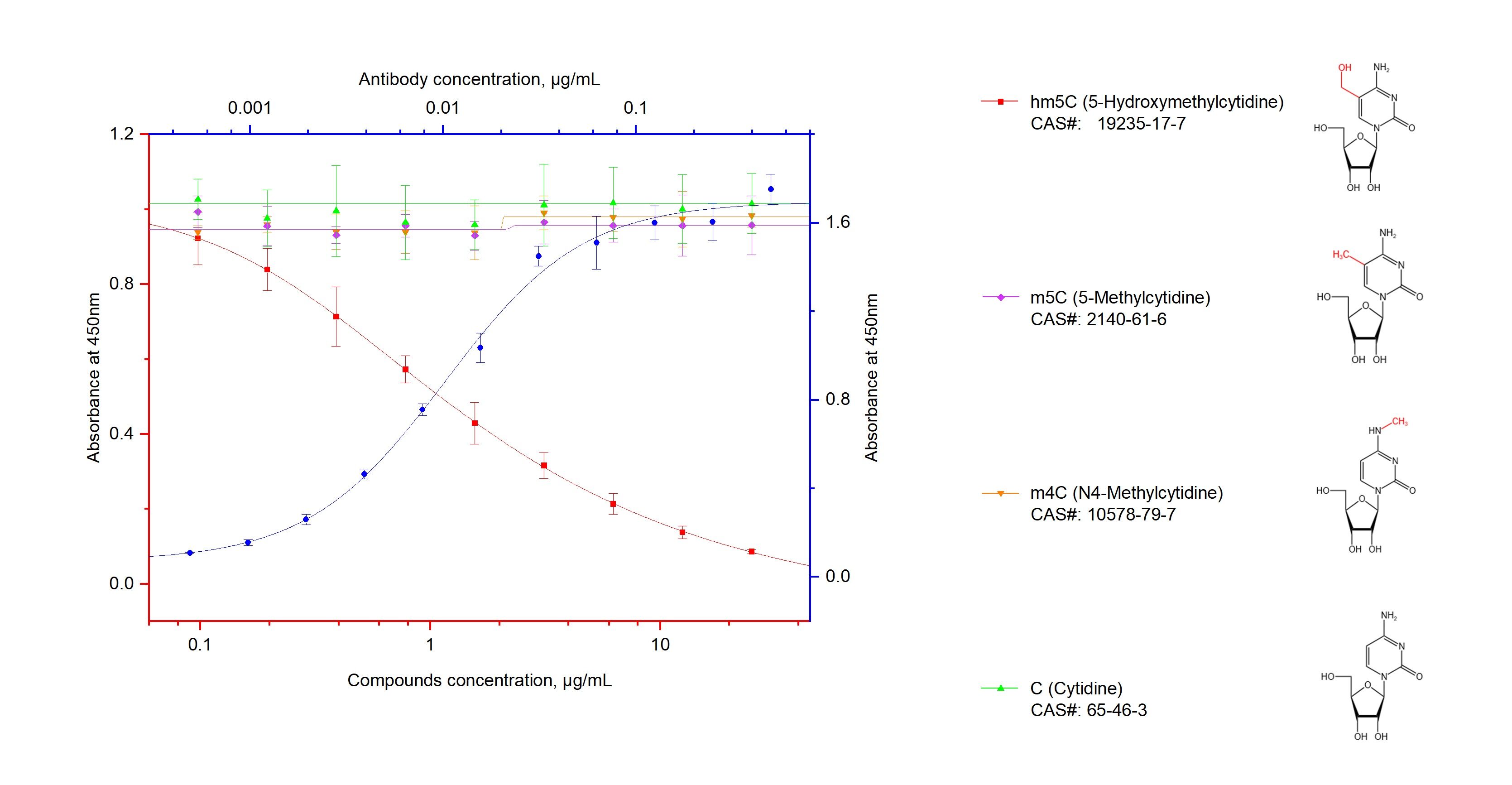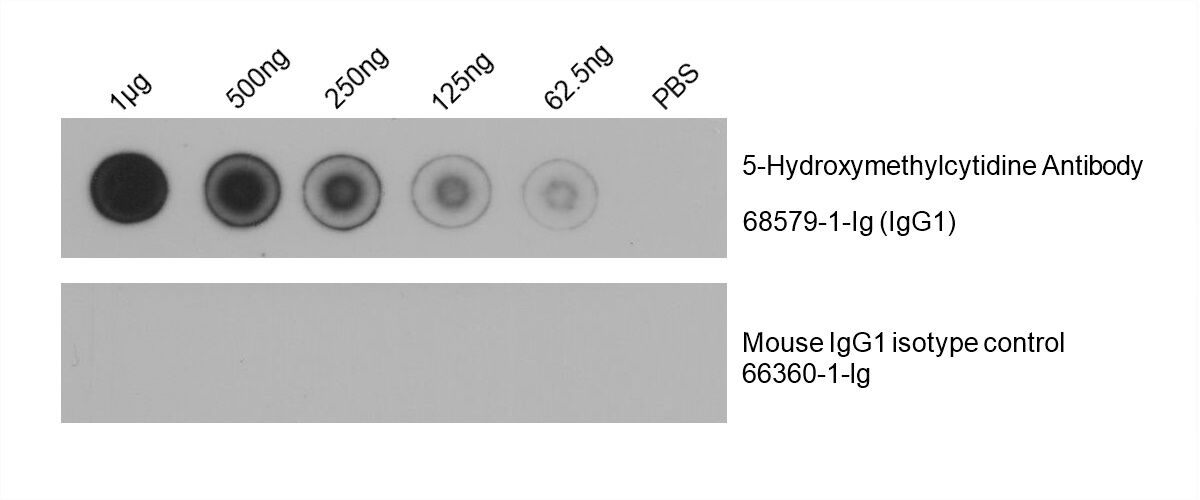验证数据展示
经过测试的应用
| Positive ELISA detected in | 5-Hydroxymethylcytidine |
| Positive Dot Blot detected in | RNA |
推荐稀释比
| 应用 | 推荐稀释比 |
|---|---|
| Enzyme-linked Immunosorbent Assay (ELISA) | ELISA : 1:2000-1:20000 |
| DOT BLOT | DOT BLOT : 1:1000-1:4000 |
| It is recommended that this reagent should be titrated in each testing system to obtain optimal results. | |
| Sample-dependent, Check data in validation data gallery. | |
产品信息
68579-1-Ig targets 5-Hydroxymethylcytidine in Dot Blot, ELISA applications and shows reactivity with chemical compound samples.
| 经测试应用 | Dot Blot, ELISA Application Description |
| 经测试反应性 | chemical compound |
| 免疫原 |
PTG 种属同源性预测 |
| 宿主/亚型 | Mouse / IgG1 |
| 抗体类别 | Monoclonal |
| 产品类型 | Antibody |
| 全称 | 5-Hydroxymethylcytidine |
| 别名 | hm5C |
| 基因名称 | |
| Gene ID (NCBI) | |
| RRID | AB_3085279 |
| 偶联类型 | Unconjugated |
| 形式 | Liquid |
| 纯化方式 | Protein G purification |
| 储存缓冲液 | PBS with 0.02% sodium azide and 50% glycerol, pH 7.3. |
| 储存条件 | Store at -20°C. Stable for one year after shipment. Aliquoting is unnecessary for -20oC storage. |
背景介绍
Oxidation of 5-methylcytosine in DNA by ten-eleven translocation (Tet) family of enzymes has been demonstrated to play a significant role in epigenetic regulation in mammals. Recent reaearch shows that Tet enzymes also possess the activity of catalyzing the formation of 5-hydroxymethylcytidine (5-hmrC) in RNA. It is known that RNA carries more than 100 distinct types of modifications, and these modifications modulate the structure and functions of RNA. Ribonucleoside 5-methylcytidine (m5C) is subject to oxidative processing in mammals, forming 5-hydroxymethylcytidine (hm5C) and 5-formylcytidine (f5C). Researchers have identified hm5C in total RNA from all three domains of life and in polyA-enriched RNA fractions from mammalian cells. This suggests m5C oxidation is a conserved process that could have critical regulatory functions inside cells (PMID: 25676849).
Protocol for Dot Blot:
https://www.ptglab.com/protocol/68579-1-IgDotBlot.pdf



